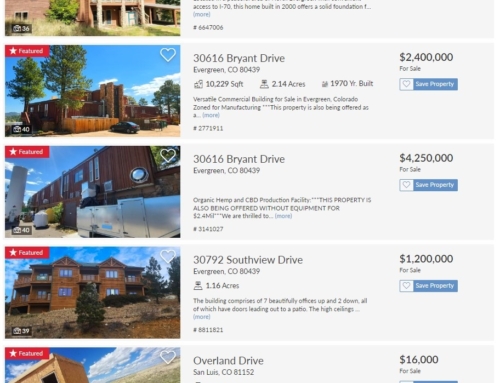Below I have a complete unedited copy of a Chicago Tribune article written by one of the dumbest people to ever write an article. Sorry but this person has no idea how the real estate industry operates and for her to write an article giving advice to consumers is irresponsible and needs to be addressed. I would have written my comments directly on their website but they do not allow comments. I can see why. When people write such trash it needs to be disputed. I am going to be very candid in my assessment of this article. In no way am I trying to be manipulative or fix pricing. I am just going to tell you the reality of the situation. I will mark my comments in red. I am also not an attorney and not offering legal advise or real estate advise. Please consult your own attorney or real estate agent. If they mess with the current real estate system it will hurt the market as much as the 2008 crash. There is a reason brokers work so hard for you, they make decent money. If you want someone that makes minimum wage helping you buy or sell your biggest investment, well then you will get minimum wage results. You will get people that just don’t care. If someone can work at McDonnalds and make the money as selling houses? The ignorance of some people is astonishing sometimes.

Buying or selling a home? A new lawsuit could change how much you pay the Realtor
Why should a home seller have to pay for the buyer’s side of the transaction, No one is forcing anyone to pay a buyer side commission. A seller has every right to not pay a total commission of less than $1 (in most states for a contract to be legal some sort of compensation needs to occur). especially when the buyer’s expenses include negotiating against the seller?
That apparent (don’t you mean alleged since the lawsuit has not been settled yet?) conflict of interest is at the heart of an escalating legal battle that pits the National Association of Realtors (NAR) against a group of law firms that filed a class-action lawsuit (this sounds great for the attorneys how much money will the consumers get?) on behalf of home sellers against the NAR and four large national real estate brokers: Realogy, HomeServices of America, RE/MAX and Keller Williams Realty. As of May 22, the Department of Justice joined the fray when it demanded information about residential estate commissions from CoreLogic, a California-based data analysis firm.
The fight is forcing into the open many of the hidden factors that dictate how realty agents are paid and common practices that make it difficult for home sellers to effectively negotiate the commissions they pay. (It is already illegal in most states including the one I sell real estate in to say anything like “the going commission rate is X” Most real estate agents do negotiate on price.
Benjamin Brown, a partner with Cohen Milstein, one of the firms that filed the class-action lawsuit in the U.S. District Court, Northern District of Illinois, said that the suit challenges not the commission rates or how real estate agents apply the commission structure, but how the commissions are divided up between the seller and the buyer. Brown is co-counsel on the class-action suit, Moehrl v. National Association of Realtors. So Mr. Brown you seem extremely concerned about the public’s well being. I would imagine you are doing all this work on this case pro-bono? If not I think the bigger concern of the public is attorney fees. Those are astronomical. Or is that a conversation for another day? Or is this just revenge for cases like Conway VS Boges when they ruled that real estate transactions did NOT NEED AN ATTORNEY and you people lost a huge amount of clients and business. That case also stated real estate brokers could basically practice law within the confines of pre approved contracts. That must have made you sad ?
It is standard for multiple listing services — data bases owned by realty agents — to require that the entire commission be paid by the home seller. Typically, the commission is 5% to 6% of the sale price of the property. Then, the commission usually is evenly split between the broker representing the seller and the broker representing the buyer. Problem is that these idiot attorneys are only looking at things on paper. It is not cheap to be a real estate agent. Our expenses are astronomical. I personally spend about $2000-$3000 marketing a listing. I spend countless hours showing buyers homes until they find the right one. These attorneys have no idea how much it costs to run a business. If you cut out a buyer side commission a real estate agent will have no choice but to raise the listing side commission in order to keep their doors open.
That means that the seller directly pays for the transaction costs for the other side — even when, as is common, the other side negotiates for a better deal. The net result is that the seller is forced to pay for those working against him or her. The core of the lawsuit is that “the rules are, in effect, anti-competitive,” said Brown. “It’s a very strange way to run a market.” This is how the market has been run for many, many years. It is a system that was fine until some scumbag lawyers wanted to make some money. Let’s talk about attorney fees for a minute. Oh.. No one wants to have that conversation?
The Chicago-based NAR has been defending aspects of its business model for a decade. In 2008, the U.S. Department of Justice and the NAR settled an antitrust suit that forced MLS systems to allow brokers and agents to design commissions the way they wanted — for instance, offering flat-fee services, discounts and other variations on the commission structure. As digital realty listing sites and services have proliferated, the MLS systems and brokerages have evolved to allow an expanding array of alternative agencies, digital publication of listings and online real estate services.
The NAR filed to dismiss the lawsuit, partly based on the fact that it supports many types of business models for its members, said Rene Galicia, director of MLS engagement for the NAR. “The MLS doesn’t set commission rates. That’s left up to individual brokers and consumers, depending on the transaction,” he said. “Consumers should look at their level of comfort with real estate and what they want to accomplish. It’s highly competitive right now. Lay out your goals and find which broker will meet your needs.”
The actual commission structure has not been tackled head-on until now, say real estate experts. Real estate experts? Ummm Please state your sources.
The split-commission structure causes confusion when sellers try to negotiate how much they will pay, I have never had a seller confused about this nor have I ever heard of one being confused. because any reduction must be negotiated with everybody involved, explained Gary Lucido, president of Lucid Realty Inc., a Chicago broker that offers rebates on commissions. For instance, if the seller’s agent agrees to take less money, the buyer’s agent might not agree to a discount.
Also, the baseline costs of selling are not always obvious to consumers, said Lucido, which means that home sellers often don’t have the information they need to effectively negotiate. The cost of listing a house in the MLS, which feeds national listing sites such as Trulia and Zillow, Zillow sucks is the same regardless of the asking price. A higher-end property might require additional marketing services and associated costs, such as a drone video or a fancy broker’s open house. Here is another example of you being an absolute moron that knows nothing about real estate. Yes there are higher marketing costs for higher end homes but way more time involved in lower end homes. On lower price homes you have the issue with lending. Lower price points are usually just slipping by on qualifying. You have to do a lot more work with lenders and helping them find the right lender with the right product. You also usually have way more inspection issues with lower price points. There are countless additional hours involved in lower priced homes. So what is more valuable? A person’s time or actual cash spent on marketing?
But usually, said Lucido, the additional cost of marketing does not justify the richer commission on a higher-end property. That is why, he said, agents are more willing to reduce their commissions on more expensive properties than on those under $200,000: Once the fixed costs are covered, it doesn’t take that much more work to sell an expensive property than a moderately priced property.
The class-action lawsuit and DOJ involvement it was the Russians might be enough to bring Americans in line with the rest of the world in terms of how real estate fees are calculated and paid for, said Timothy S. Becker, director of the Kelley A. Bergstrom Real Estate Center at the University of Florida in Gainesville. “The 6% model is ridiculous compared to how real estate is bought and sold in the rest of the world,” said Becker. “The agencies are set up to work for the transaction and for the agents’ own interests, not for consumers.” Real estate commissions around the world vary, but often are as low as 1.5%. So it is the same kind of structure just less? You are an idiot. You are are claiming it is totally different but yet the same? Why do we listen to these people.
It is significant that the class-action lawsuit is brought on behalf of property sellers, because they are the ones who pay the entire cost of the transaction. “The buyers currently don’t pay anything,” said Becker, “There should be a correlation between what you get and what you pay for.”
Consumer tips: When selling a house
- Choose an agent who is open about offering a discount or rebate so that you do not have to ask an agent who claims to offer a full service for full commission to discount his or her services. WE ARE NOT LEGALLY ALLOWED TO REDUCE OR SERVICES IN COLORADO. To find a discount broker, use internet search terms such as “flat fee,” IF YOU PAY SOMEONE $200 TO SELL YOUR HOME HOW MUCH WOULD YOU LIKE THEM TO SPEND ON MARKETING YOUR HOME? “discount” and “rebate.”
- See if you can take on some of the marketing chores, Yes because anyone that can use Snapchat filters can make marketing material. such as holding an open house, This is probably the stupidest comment is the article. For starters, how about security? Second if your agent holds an open house you be as far away from that house as you can. You are not a real estate agent and will do more harm than good. You can open yourself up to legal issues, say the wrong thing or just look like a pussy asshole. DO NOT DO YOUR OWN OPEN HOUSE! to offset some of the discount.
- Read the standard listing contract in advance to understand the rules of the MLS that serves your area. MLS rules might limit how much negotiating room your agent has, given that the agent must share the commission with the buyer’s agent and broker, who might not be open to a discount.
- When you are interviewing agents, ask for a breakout of the expected costs of marketing the property, from the MLS listing fee to the photography to any extra services. That lets you compare agents’ proposals in terms of what they promise to spend so you can negotiate the commission accordingly.
Consumer tips: When buying a house
- Enlist an agent to represent you as a “buyer’s agent,” which means that the agent must put your best interests ahead of his or her own. A buyer’s agent also must keep your information confidential. This is the only intelligent thing you said in this entire article.
- Choose an agent who is open about offering a discount or rebate so that you do not have to ask an agent who claims to offer a full service for full commission to discount. I don’t even understand this paragraph. It’s almost like you were just trying to get your word count up.
- Ask the agent how he or she must split the buy-side commission with the broker, IT IS SPELLED OUT IN YOUR LISTING CONTRACT. WHY ARE YOU MAKING US LOOK SO EVIL? and if the broker is willing to discount his or her slice of the commission as well.
- Include in the buyer’s agent contract the requirement that the agent disclose to you any additional incentives offered by a seller, such as a bonus for landing a signed contract by a certain date. IT IS CALLED FULL DISCLOSURE AND IS ALREADY A LAW IN ALMOST EVERY STATE.
Joanne Cleaver is a freelance writer.
Joanne Cleaver, Not only are you ill informed about the process of buying and selling a home, you are putting the public in danger physically and financially. It cost people to sell their biggest investment correctly. It is dangerous for homeowners to host open houses. You are incompetent and a phone call to any of the millions of real estate agents in the country would be beneficial to you getting your facts straight. What is boils down to is how well you want your home marketed. It is a no brainer that the more people that see your listing the more offers you will get and you will know the true value of your home. People look at the surface of a real estate deal and think they even have a clue about how it works.
Copyright © 2019, Chicago Tribune
I invite this author to call anytime if they would like to interview an actual real estate broker and I would be happy to explain to you exactly how the real world of real estate works. It would have been a great benefit to do so before publishing such trash

Orson Hill Realty is a real estate company in Evergreen, Colorado that serves the Denver Foothills and the Denver Metro. Orson Hill Realty can assist in any size real estate transaction from small land listings to luxury listing agents and buyer brokers.
Orson Hill Realty has experienced listings agents and buyer agents. Our Realtors know how use high tech digital marketing mixed with old school marketing to sell your home faster and for more money.
This technology also helps buyers find their home faster. That way a buyer never misses the perfect home again. Any real estate agent in this day and age that doesn’t leverage technology is not doing their clients any favors. All Orson Hill Realty real estate agents are Realtors.
Orson Hill Realty is a full-service Colorado-based real estate company that offers professional real estate agents and brokers to assist you in your buying or selling process. Our agents are well-versed in the local community and have a strong online presence, making them highly effective in their field. For buyers, we offer online listing alerts and a user-friendly portal to facilitate an efficient home search, with access to homes not yet on the market, and for sellers, we advertise on a wide range of listing websites to ensure high visibility for your listing.
As realtors, we are dedicated to upholding a higher level of ethics and experience in our business, and we are deeply invested in the community, with active participation in various local events and activities. Our real estate agents possess a wealth of knowledge on the local area and know how to negotiate the best prices for your needs. We offer excellent services for luxury homes and horse properties, although we handle any size real estate transaction with utmost professionalism.
Our company places a strong emphasis on technology, recognizing the importance of an online presence to meet the demands of our fast-paced industry. With multiple high traffic websites and digital marketing strategies, we ensure that your property is marketed throughout the internet to reach a wider audience. We are dedicated to providing luxury services to all our clients, regardless of the price point.
Orson Hill Realty
Ask me about Southwest Florida real estate










Leave A Comment
You must be logged in to post a comment.